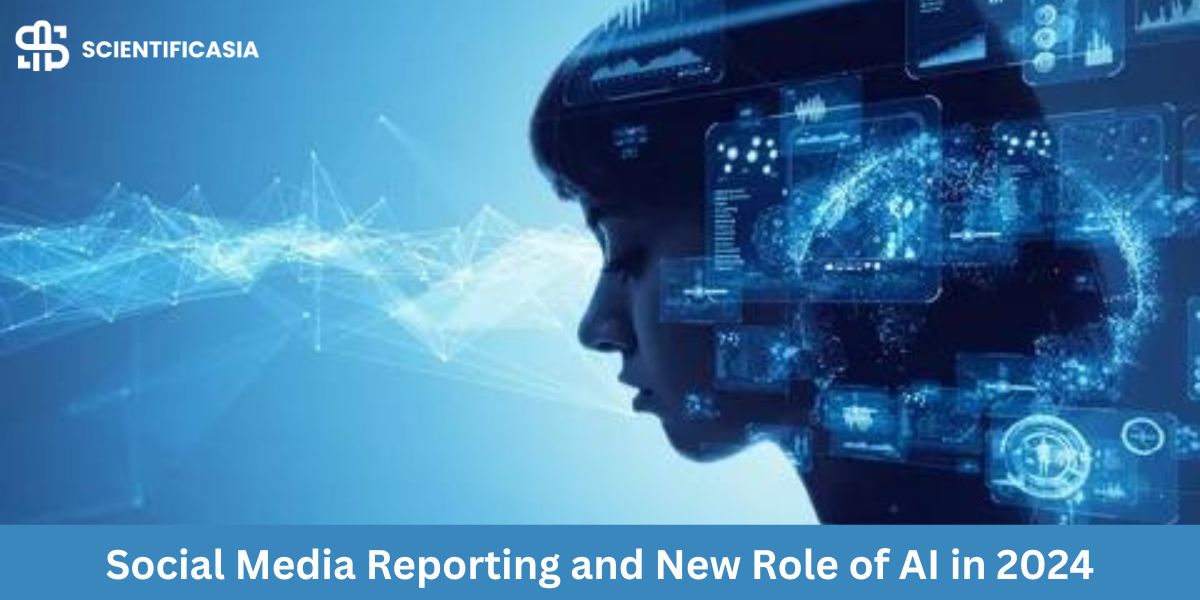In 2024, marketers must navigate complex social media reporting, with average daily user time exceeding 2.5 hours. This presents significant opportunities for brand engagement. Billions of daily interactions provide valuable data for assessing social media effectiveness.
The challenge lies in extracting key insights to gauge progress toward social media goals. Beyond likes and follows, the focus is now on user sentiment, content virality, and conversion metrics. The goal is to leverage these insights into strategies that deliver measurable results.
What is a social media report?
Simply put, a social media analytics report shows the performance of your social media channels, helping you make informed decisions. A report can vary in design and format, ranging from an Excel spreadsheet containing many data points to an attractive automated report. These reports help you gauge the performance of your social media campaigns, guiding your strategy and decision-making processes.
Why is social media reporting important?
Regularly tracking the performance of your social media marketing campaigns is crucial. It helps you understand what’s effective and what isn’t, allowing you to refine your strategy. For instance, if your YouTube videos bring in the most valuable customers, while your LinkedIn posts generate little traffic, you can adjust your content and distribution strategies accordingly.
1. Stronger content
Social media reports help identify the type of content that resonates most with the audience through engagement metrics like replies, mentions, and shares. This enables businesses to create more impactful and engaging content.
2. Confirms marketing strategy
These reports can validate the effectiveness of advertising strategies and guide budgeting for future efforts. They provide insights into areas that need improvement and whether the content is positively affecting consumer interactions.
3. Added value
Social media reports allow businesses to leverage trends, hashtags, and viral content, creating a stronger connection between the brand and customers. This can lead to creative ways to inspire and entertain the audience, fostering brand loyalty.
4. Customized performance metrics
These reports enable companies to focus on specific metrics, such as engagement rates, geographical distribution of customers, and sales data on certain days. Customizing the metrics allows businesses to align their social media and marketing efforts with their goals.
Social media reporting frequency
The frequency of social media reporting depends on your specific needs and goals. Here are some common intervals:
– Daily: Monitor brand mentions and conversations in real-time. Daily reports can highlight viral posts or engagement boosts as they happen.
– Weekly: Get insights into new and trending topics. Weekly reports provide more context than daily ones.
– Monthly: Assess data on social media growth, impressions, links clicked, and conversions tracked. Monthly reports show the true ROI of your social media efforts.
– Annual: Evaluate year-over-year comparisons and overall marketing strategy to create a yearly budget and strategic plans.
Finding the right balance between report frequency and the time it takes to compile reports is essential. Different roles within a company may require different levels of reports at different intervals.
How to create an effective social media report
1. Take KPIs from all your platforms: Integrate all your social media metrics into a comprehensive report to provide a holistic view of your performance.
2. Executive summary: Provide a high-level overview of your report at the top, highlighting key insights, achievements, and recommendations.
3. Comments and notes: Add commentary and actionable insights to guide decision-making and demonstrate the value you bring to clients.
Pro Tips:
– Use comments and notes to prove your value to clients and demonstrate how you’re optimizing their social media strategies.
– Share drafts of your reports with internal teams for proofing and feedback before presenting them to clients.
How AI enhances social media reporting
The integration of AI in social media has revolutionized the way businesses engage with their audiences and analyze data. Here’s how AI can help:
AI form generator for interactive content
AI technology can quickly create interactive content such as quizzes, surveys, and lead generation forms. For instance, Involve offers an AI-powered form generator that crafts customized interactive content based on a company’s logo and needs.
Automated social media scheduling
AI-powered scheduling tools optimize content sharing for peak engagement by analyzing historical data on user engagement. Sprinklr’s tool assesses past metrics to recommend the best posting times on social media, maximizing content visibility and interaction.
Chatbots for customer support
AI chatbots provide round-the-clock customer support on social media platforms, managing inquiries and transactions. Domino’s Pizza employs a chatbot on Facebook Messenger to streamline ordering, showcasing how AI improves customer engagement.
Instant language translation
AI-driven translation tools remove language obstacles on social media, allowing for effortless communication with a wider audience. Twitter leverages Google’s Translate API to enable tweet translation, promoting inclusivity and broadening its appeal to diverse linguistic groups.
Influencer marketing optimization
AspireIQ utilizes advanced AI algorithms to help brands find influencers who align with their target audience. It achieves this by analyzing factors such as engagement rates, audience characteristics, content relevance, and sentiment to ensure a good match.
AI-powered analytics
AI-driven analytics platforms provide valuable insights into user engagement, demographic characteristics, and interaction with social media content, guiding effective social media strategies.
Wrapping up
Social media marketing in 2024 offers both great opportunities and challenges for marketers. With daily social media usage surpassing 2.5 hours on average, brands have ample chances to connect with their audiences and gather important data to evaluate their strategies’ effectiveness. The daily billions of interactions on these platforms provide valuable insights into user sentiment, content virality, and conversion metrics, enabling impactful and measurable marketing strategies.
Social media reporting is crucial for tracking campaign performance, verifying strategy effectiveness, and customizing metrics to align with specific business goals. Consistent monitoring allows businesses to refine strategies and enhance content for optimal impact.
Additionally, AI integration in social media reporting empowers businesses to engage with audiences and analyze data more efficiently. AI technologies like chatbots, automated scheduling, language translation, and analytics tools enable improved customer interactions, enhanced influencer marketing, and faster content creation.
















